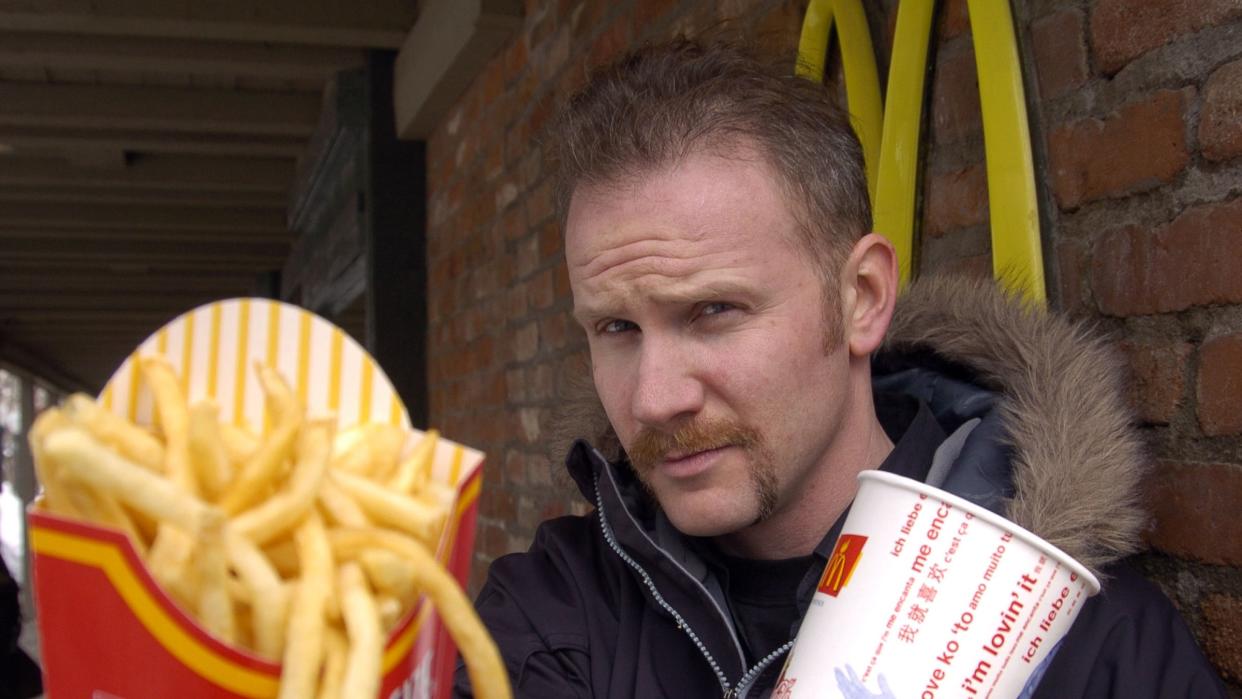Morgan Spurlock: the filmmaker who shone a spotlight on McDonald's

Morgan Spurlock, who has died aged 53, "owed his career to a Big Mac", said The Times.
In 2002, he saw a TV news story about two young women who were suing McDonald's for allegedly misleading them about the nutritional content of its burgers and fries, causing them to gain excess weight. In response, a spokesman for the fast-food giant insisted that McDonald's food could not be linked to obesity, because it was healthy and nutritious.
Super Size Me fame
This gave him the idea for a documentary, in which he would test that claim by eating only food from McDonald's for 30 days. The rules he set himself also stipulated that if he was asked by the server if he'd like to "super-size" his food or drink, he'd always say yes; and he'd adjust his exercise routine, so that he took only the 5,000 steps that is the US average. "Let's find out, I'm ready," he said cheerily to the camera, at the start of the project.
Within a few days, he was vomiting, depressed and developing "McSweats". By the end, he was 24.5lbs heavier, and his body fat levels were up 7%. He had lost his sex drive; and though he felt "grossed out" by the idea of fast food, he was also craving it. It took him 14 months to lose the extra weight, and he claimed that he was thereafter more prone to gaining weight, because his body had lost its "resiliency".
The resulting documentary, "Super Size Me", cost about $60,000 to make and grossed $22 million. It was nominated for an Oscar, and made Spurlock – instantly recognisable with his wide smile and walrus moustache – a household name. It also put renewed focus on the impact of McDonald's in a country where a quarter of people visited a fast-food restaurant every day. McDonald's withdrew its super-size option six weeks after the film premiered, having introduced a new Go Active! menu at the time of the film's release. Spurlock wasn't the first to warn about the dangers posed by multinational giants, said The Daily Telegraph: Naomi Klein's book "No Logo", and Eric Schlosser's "Fast Food Nation", preceded his film by some years. Neither of them, however, had anything like its impact.
Yet many raised doubts about the film. Of course, it was hardly news that a diet consisting of nothing but vast mounds of chips and burgers would be bad for the health, said The Guardian. Spurlock did not help his case by refusing to release logs of his diet; and the revelation that he had been drinking during the shoot further reinforced the view that he was a flashy showman, more interested in entertaining viewers with "gonzo" stunts and grizzly factoids than in asking serious questions about why and how fast-food restaurants have become so ubiquitous, in low-income neighbourhoods in particular.
Rape accusations
Spurlock was born in West Virginia, where his father ran a car- repair shop and his mother worked as a teacher. He loved Monty Python as a child, and recalled practising "silly walks" aged six or seven. After graduating from NYU, he hoped to become a film director. But after a stint working as Woody Allen's assistant on "Bullets Over Broadway", and Luc Besson's on "Leon", he moved into reality TV.
He made some 70 films and TV shows after "Super Size Me", ranging from "Where in the World Is Osama Bin Laden" (2008), to "One Direction: This Is Us" (2013); but in a blogpost in 2017, he admitted that he'd been accused of rape at college, and had paid off an assistant who'd accused him of harassing her. "I have been unfaithful to every wife and girlfriend I have ever had," he also wrote, explaining that he had been sexually abused in his youth. The result, said The Washington Post, was "career death"


